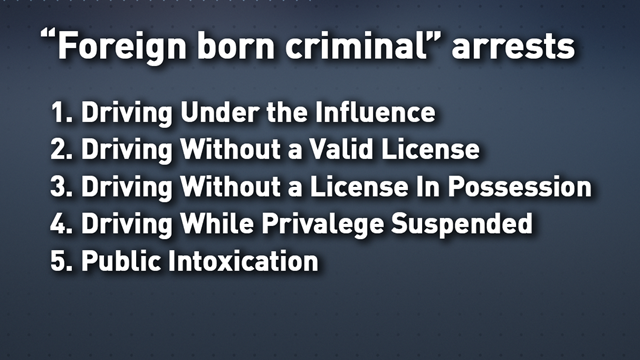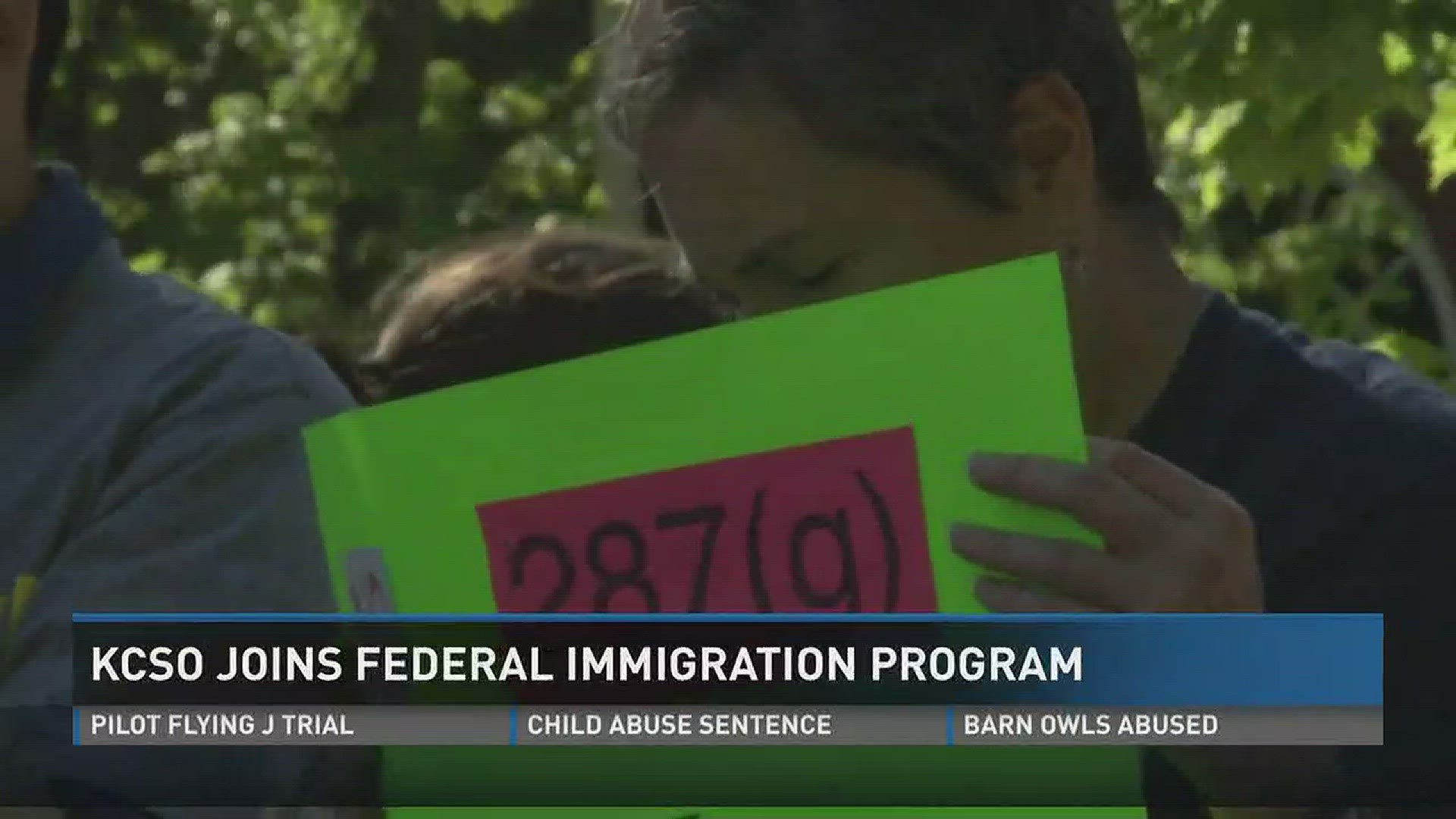The Knox County Sheriff’s Office has entered in a partnership with federal immigration officials to act on their behalf.
It’s part of the controversial Immigrations and Customs Enforcement 287(g) program.
287 (g) delegates immigration authority from federal agents to local law enforcement through a memorandum of agreement that allows deputies to act on ICE’s behalf. Critics say it leads to ballooning deportations for minor offenses, but Knox County Sheriff JJ Jones believes it will make the Knox County detention facility more efficient.
The document was signed by ICE Executive Associate Director of Enforcement and Removal Operations Matthew Albence on June 15. It’s valid until June 2019.
The Sheriff’s Office filed to participate in the Immigrations and Customs Enforcement (ICE) 287 (g) program in February. Officials first put in the request in 2013, but it was delayed.
Jones drew criticism in 2013, after the first application was denied, for saying he would "stack these violators like cordwood in the Knox County Jail until the appropriate federal agency responds."
“We were told there wasn’t funding to go forward with 287 (g),” Sheriff Jones said in May.
President Trump signed an Executive Order to expand the program in February.

Knox County is now the only law enforcement agency in Tennessee to participate in the 287(g) program. ICE has 45 such agreements in 18 states.
Jones previously told 10News that their application is for a "jail task force" model, not law enforcement. He said that means crimes that do not warrant arrest will not put someone in danger of deportation, only those who are arrested would be brought into the system.
When asked about the potential for abuse of the system, Jones promised rigid oversight.
“I promise to stay on top of this,” Jones previously said. “I’m not about ruining lives, or ruining families or seeing how many people we can deport. That’s not what this is about.”

But immigrant rights advocates expressed frustration with the approval late Wednesday.
“Sheriff Jones has not publicly acknowledged Knox County’s approval for 287(g),” wrote AKIN, a Knoxville immigrant rights group wrote in a press release. “The lack of transparency surrounding the program’s approval and timeline for implementation mirrors the Sheriff’s ongoing refusal to meet with Knox County residents to hear concerns about the program.”
Mary Ann Reeves is AKIN's co-chair. She said the group opposed the 2013 application, and will continue to fight this new agreement.
She believes the program will end up costing tax payers more.
"This turns immigration into a county issue, and by doing that it forces the cost on counties rather than federal costs," Reeves said.
The group also raised concerns about the effect on families fleeing persecution in home countries, and fears that the agreement might create a divide between immigrant families and law enforcement.
"So when you start having this distress built, when people are afraid to go to the sheriff, when they are afraid to go the police chief, when they are afraid to document or even call anyone when something is happening in their community, it makes us all unsafe," said Reeves.

A spokesperson for the sheriff’s office said Jones would not speak about the agreement until they have more details.
Jones told 10News previously that he hopes the 287(g) program will solve a problem of detainees spending 30-40 days in the county jail as ICE considers their deportation. Knox County brings in about 20 ICE detainees per month, according to KCSO's application to ICE.
“Now with 287(g) in our jail, we know within 48 hours if that person is going to be deportable or if the deportation process will start,” Jones said in May. “If not, they’ll be allowed to make bond, to go back to their jobs, their families, plus they save tax payers $100 a day every day they’re not in jail."
But Reeves contends the program will cost taxpayers more, pointing to other 287(g) partners in Mecklenberg County, North Carolina and Maricopa County, Arizona. She cited a University of North Carolina at Chapel Hill study, which claims "the direct expenditures of the 287(g) Program, which include start-up, daily operating, and maintenance costs for each program operated in a local or state jurisdiction, cost millions of dollars."
Former Knox County District Attorney Randy Nichols said he feels good about the 287(g) partnership. In 2014, Nichols was appointed as special counsel for KCSO in the areas of mental illness, drug abuse and domestic violence awareness.
"We think it's going to be a significant improvement and cut down on jail days," Nichols said.
He said Sheriff Jones told him ICE was planning a site visit for Friday, though a KCSO spokesperson denied that claim.
Though both ICE and Sheriff Jones have signed the agreement, it is not yet active. KCSO deputies must still complete ICE training.

